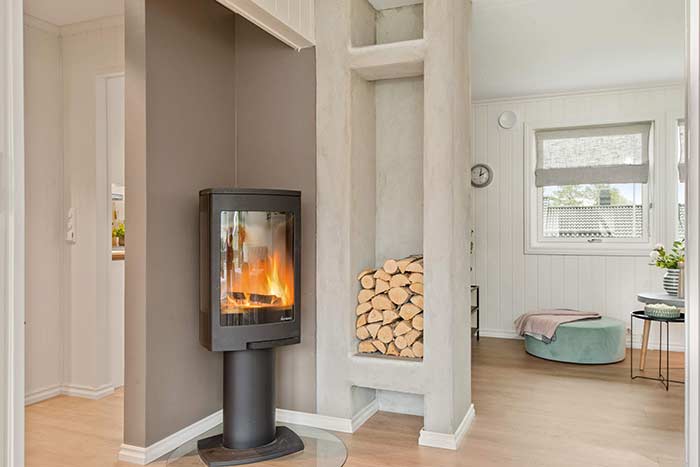
As we head into the colder months, a lot of households will be looking for ways to stay warm, but many of us will also be concerned that staying cosy could come at the expense of a high electricity bill. If you are renovating or extending your home, it’s the perfect time to include energy-efficient heating to keep your electricity consumption low without sacrificing your comfort. Duncan Thompson Extensions are the leaders in quality house extensions in Doncaster and surrounding suburbs. Let’s look at the different heating systems so you can determine which one is best for your new home.
Types of Heating Systems
There are a few common types of heating found in Melbourne homes, including:
- Gas space heaters – these units can heat up large indoor and outdoor spaces very quickly. They are a very efficient use of gas.
- Electric reverse-cycle heating/air conditioning- effective for heating individual rooms and large spaces such as an open-plan living area.
- Ducted gas heating – consisting of a compressor and ducted outlets in the rooms you want to heat. A good system can be very efficient, but installation can be costly. Consider it if you’re building or renovating a house.
- Hydronic central heating – this system may use gas, wood, or solar energy to heat hot water and then circulate it through heating coils, radiator panels, or convectors which push the warm air into the room. Another great choice if you are renovating or extending due to the installation work required.
- Heat shifters- these units use fans and ducts to force warmed air into the cold parts of your house. These shifters can be cheap to install and run.
- Portable electric heaters – cheap to buy, but costly to run. Most portable electric heaters are not considered an energy efficient option.
- In-slab floor heating – electric wiring or water pipes are installed into the concrete floor slab. The slab is heated, using cheap off-peak electricity or hot water. The substantial construction work required for this type of heating means it’s more appropriately installed when a house is being built.
- Wood fireplaces
Ensure You Get the Right Size Heating System for Your Needs
There are several factors to consider when choosing your heater’s capacity:
- The climate you live in.
- The floor area and ceiling height of the area.
- The amount of natural sunlight in the area.
- Whether the floors are carpeted.
- Whether adjacent rooms or floors above and below are heated.
- The amount of other insulation.
As a general rule, for a moderate climate such as Melbourne, a well-insulated room of 20 square metres will probably need a 2000W electric heater or a gas heater with 6–8MJ input. The same room would need more heating if poorly insulated.
General Renovation Advice for More Energy-Efficient Heating
Besides the heating system itself, there are a few other things you need to consider when renovating or extending your home to ensure maximum energy efficiency when it comes to heating.
Insulation
Without adequate insulation, no matter which heating system you select, it will be difficult to retain warmth in the home. Insulation creates a barrier between the inside and outside of your home., keeping the heat inside in winter, and keeping it out in summer. A well-insulated home provides all year comfort, while reducing heating and cooling costs by up to 50%. Insulation can be installed in all parts of your home – under the roofing material, in the ceiling between the joists, under verandah roofs, in bulkheads, on the inside or outside of solid walls, within stud frames or brick cavities and on the underside of suspended floors.
Windows
The size, position, glazing and frame composition of windows all influence how much heat or cold they gain or lose for your home. Windows should seal well, the frame should conduct as little heat as possible, and the glazing should resist heat transfer. Double glazing is a great option. The design and style of the windows (louvres, outward opening, sliding) should also be chosen to enable passive ventilation pathways, and not obstruct or hinder them.
With heating and cooling making up such a large part of the household energy bill, it’s important to plan your house extension carefully to include everything possible to ensure maximum energy efficiency a well as selecting the right system for your needs and budget. While the initial outlay may be slightly more expensive, you will be thankful in the long run when you are toasty warm all winter long with reasonable power bills.
For more information or to discuss renovations or house extensions for your Doncaster home contact our team today. With over 30 years’ experience specialising in creating quality homes for modern families across Melbourne’s eastern, inner eastern and bayside suburbs, there’s a reason we are continually recognised as one of Melbourne’s premier home extension companies. Get in touch with the Duncan Thompson Extensions team online today or call us on (03) 9836 8655.
